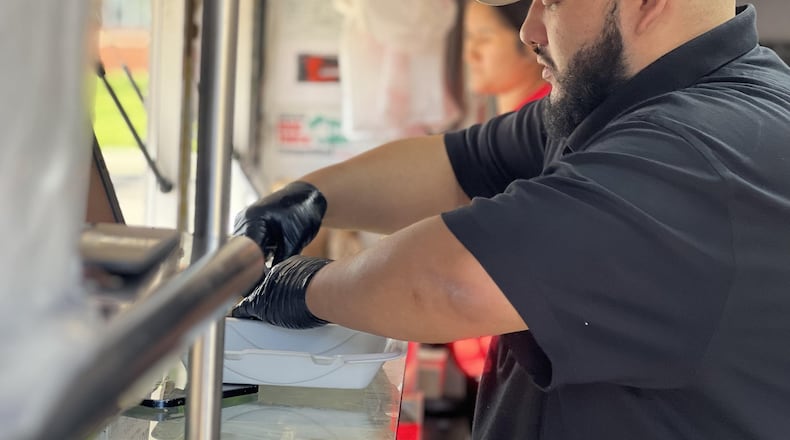Rob Alexander, executive director of the SBDC, said the funding from Mercy Health is huge, and it will help stimulate the local economy in the years to come.
“This $1 million will change the lives of some of these families who receive the loan funds. We’ve seen time and time again where getting the support you need to start a business changes that person’s life which can then change their whole family tree,” Alexander said. “It’s a snowball effect; it always starts small but it has to start somewhere.”
Adam Groshans, president of Mercy Health, said the hospital views the health of the community as being beyond health care, and supporting small businesses impacts employment and financial stability — both directly tied to a healthy community.
Groshans said the $1 million fund is a “substantial investment” in the short term that will have major impacts long term.
“We feel like it’s a very intentional way to continue to build the small community fabric, but the overall fabric of our community as well,” Groshans said.
The SBDC helped fund Armando Nunez’s food truck, Chido’s Tacos, which is expanding into a brick-and-mortar location inside COhatch The Market in downtown Springfield this month.
“He will tell you with tears in his eyes that his life has changed over the past year because we were willing to take a chance on him when his credit was far from perfect and any other bank would never have even touched his case,” Alexander said.
There is a generational wealth gap between white and non-white business owners, Alexander said, and he hopes the program will start reversing this.
“Nothing we do is going to move the needle as a community right away, but every little step pushes us closer and closer to a more prosperous and equitable community,” Alexander said. “And I think for far too long we’ve been ignoring this issue because it is so hard to even discuss, much less address the problem.”
Alexander said to start the loan process, a prospective or current business owner will sit down with SBDC’s business coaches to discuss their plan and identify if the program is right for them, then determine the next steps. He said SBDC has 20 business coaches with different areas of expertise.
Investing in the community like this is more of a “holistic approach” to health care, Groshans said. It creates a “platform” for people wanting to start their own businesses but without the means to do so.
The loans have about 5% interest rates and are available to individuals with far lower credit scores than those required to get loans from many banks or creditors, Alexander said.
The program and its funding allow the SBDC to expand into Champaign County, offering low-interest loans and important business coaching to more people, Alexander said.
It also allows Mercy Health to fund businesses with impacts on housing, food and transportation, effectively addressing high-concern health areas, Groshans said.
Alexander said he hopes that the program encourages small business ownership in Clark and Champaign counties.
“We’re really trying to find people who would normally be apprehensive about approaching a bank, so if someone’s in that position, this is worth taking a chance,” Alexander said. “You can’t hurt yourself by taking a chance and seeing if this is possible.”
About the Author
